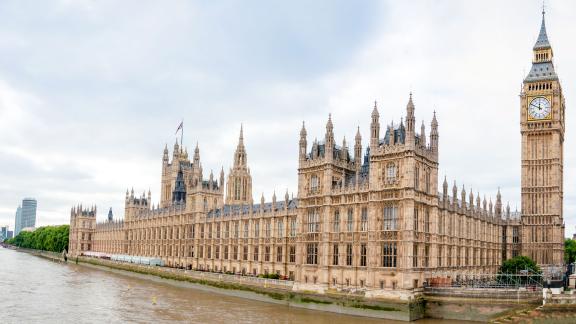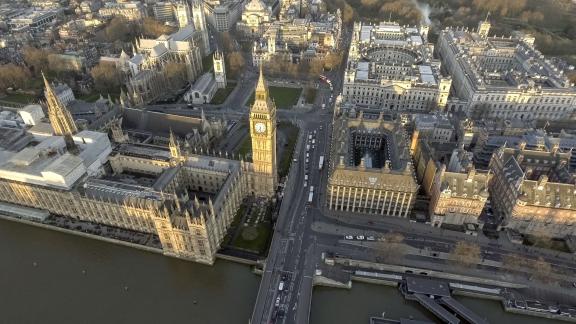Health and care bill: ping pong stages
Key points
- The NHS Confederation largely supports the health and care bill. There is clear consensus across our membership that the future of health and care must be based on collaboration and partnership working at a local level, which this bill facilitates.
- The bill is, in most part, based on recommendations from NHS England and NHS Improvement (NHSEI), as well as local health and care leaders, to remove legislative barriers to the local integration of care services. In practice, this integration is already underway across England. In many ways, the legislation is therefore catching up with what is happening on the ground.
- Our members – leaders across the NHS – agree that the bill should be as permissive as possible. It should act as an enabler of integration and local flexibility, empowering local leaders to make decisions in the best interests of their populations rather than an overly prescriptive set of centralised rules. We urge parliamentarians to resist amendments which would further prescribe the form of integrated care systems (ICSs) from the centre, instead permitted flexibility to tailor each ICSs arrangements to local needs.
- We have a number of remaining concerns in relation to the bill: 1) The timing of the legislation and the need for Royal Assent by end of April to meet the July 1 implementation date. 2) New powers for Secretary of State over local service reconfiguration were removed at Lords Report Stage but this is unlikely to hold at ping pong. At the very least, safeguards on these powers need to be brought forward. 3) Inadequacy of current workforce measures in the bill and the need to ensure the amendment that would mandate projections of workforce numbers required remains in the Bill as it approaches Royal Assent 4)Our mental health network wants to see measures to strengthen mental health provision within ICS retained in the bill and brought into law, following support within the House of Lords.

Timing of the bill
The implementation date for statutory integrated care systems (ICSs), already delayed from 1 April, is currently set for 1 July.
Any further delay to the implementation date would be disruptive and unwelcome. The NHS Confederation has already highlighted the significant problems caused to ICS leaders by the initial delay to July. The implications for accountability, finances, HR and a range of other issues would be even more severe with another delay.
We urge MPs to press the government to compromise on the issues of most concern to NHS leaders and let them get on with delivering integrated care.
Local reconfigurations (Clause 40)
Amendment 30
Our members’ most pressing concern regarding the health and care bill is the significant and largely unchecked new powers for the Secretary of State to intervene at any stage of a local service reconfiguration, with no minimum set of information requirements on which to base such a decision.
We believe this change risks undermining progress towards integration in the following ways:
- The ability of hospitals, GP surgeries, clinics and other local NHS organisations to make important and sometimes difficult decisions about the services they provide is significantly reduced. This takes away local expert accountability, which is a key aspiration of the bill.
- Without clinical advice, local input, or public transparency over local service reconfiguration decisions, the quality and safety of patient care may be at risk.
- The current wording of the bill would allow the Secretary of State to intervene, with no limitations, in a decision on local services for political reasons.
- Empowering local health and care leaders to make service decisions around the needs of their local communities is critical to meeting rising demands as the NHS addresses the elective backlog. Allowing central intervention to override local decisions undermines this principle.
80% of our members disagreed with the statement ‘the new powers for the Secretary of State in the Health and Care Bill will benefit patients’ when we surveyed them last year.
At Lords Report Stage, the Clause was removed from the bill, and we welcomed this.
Our ask
We encourage MPs to uphold the decision of the Lords to scrap this clause. Failing this, we urge MPs to press the government to bring forward amendments that would put safeguards on these powers
Workforce (Clause 35)
Amendment 29
Our members are clear that NHS workforce planning and funding is a key part of ensuring quality and safe care for patients both now and in the future. The duty on the Secretary of State in the bill as it stands does not go far enough in ensuring we know we are training enough people to deliver health and care services that meet the needs of the population in future.
In a survey of our members undertaken shortly last December, 9 in 10 said that a lack of staffing in the NHS is putting patient safety and care at risk.
We are one of almost 100 health and care organisations, led by the Royal College of Physicians, that have been calling for the bill to be amended to mandate independent assessments of current and future workforce numbers to be published regularly.
We welcomed this amendment being passed Report Stage.
Our ask
We encourage MPs to lobby Government to vote against removing this amendment from the Bill and ensure the future NHS has the workforce it needs to meet current and future demand.
Mental Health (Clause 20, 77 and Schedule 2)
Amendment 105
The NHS Confederation, including our mental health network, welcomed the Government’s amendment that puts a requirement for the Secretary of State to confirm annually whether they expect mental health funding to increase, and for ICSs and NHS England to report annually on their mental health spend. We also supported the amendment that confirms that the definition of “health” explicitly includes mental health.
Our mental health network, along with the Mental Health Policy Group, also supported Lord Bradley’s amendment to mandate a place on the ICB for a mental health specialist.
Our ask
Our mental health network urges MPs to vote for the government’s alternative amendment tabled in response to Lords amendment 105.
Conflicts of interest (Clause 14)
Amendment 11
Our members have concerns about amendment 11- introducing such a high threshold for conflicts of interest would undermine the fundamental principle of integrated working that the health and care bill is working to enshrine. It would establish a separated system where collaboration would be impossible.
Instead, we would like to see an amendment that would apply the existing ICB constitution to the committees and subcommittees of the ICB.
Our ask
We urge MPs to support the government’s new amendment in response to amendment 11 that would better facilitate collaboration and integrated working.
Powers of direction (Clause 39)
We are concerned about Clause 39 of the bill includes measures to give the Secretary of State greater power to direct NHS England beyond the objectives set out in the government’s NHS Mandate.
The Delegated Powers and Regulatory Reform Committee recently concluded that the scale of powers being moved from parliament to government by this bill ‘offends against the democratic principles of parliamentary scrutiny’.
Without safeguards, we are concerned that these powers may mean decisions are made that undermine the ability of local service managers to respond to local population needs. At Lords Report Stage, Lord Kamall said it was inappropriate for Secretary of State to be involved in individual procurement decisions and allocations of money to the system. We welcome his assurance that any intention to use these powers must be made in writing and published to ensure parliamentary scrutiny is possible.
Our ask
We urge MPs to challenge government to formalise the assurances given by Lord Kamall in relation to these powers.



